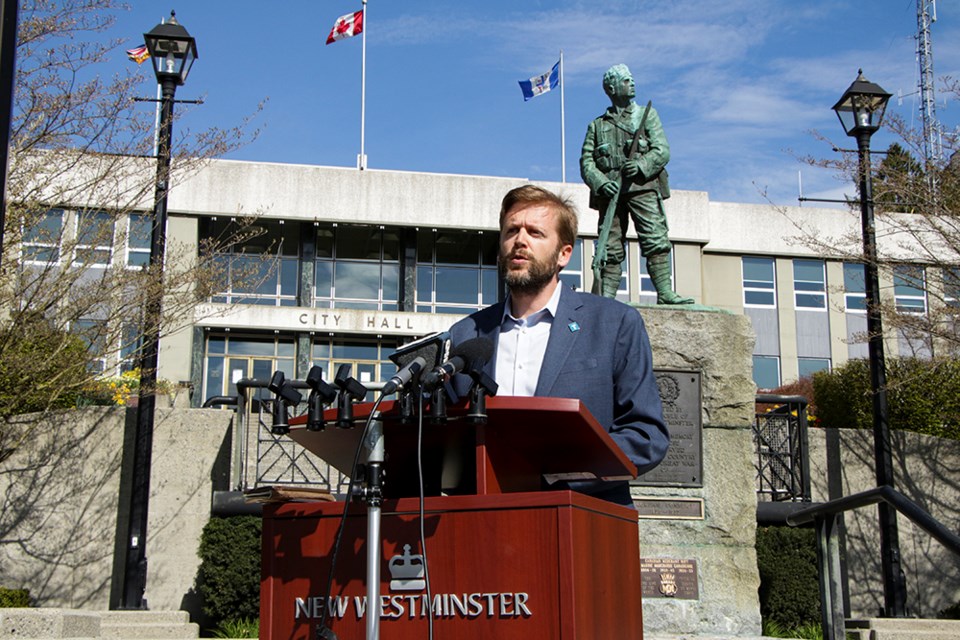The chair of the Mayors’ Council on Regional Transportation is “cautiously optimistic” there may be good news on the funding front in the coming weeks.
New Westminster Mayor Jonathan Cote, along with TransLink and the mayors’ council, has been urging the federal and provincial levels of government to support TransLink, which has seen its revenues plummet during the COVID-19 pandemic. While nothing has been confirmed at this time, Cote said there a lot of conversations are underway.
“I am cautiously optimistic,” he said. “The province, TransLink and the mayors’ council are actively working to ensure the transit system is going to be able to viable during this recovery phase.”
TransLink recently reported that it’s losing $75 million per month as ridership is down by 83% – a financial loss that isn’t sustainable.
In response to the funding crisis, it introduced a number of cost-saving measures on April 20 including further reductions of transit services on bus, SkyTrain, SeaBus, and West Coast Express, temporary layoff notices to 1,492 employees and deferral of funding to municipalities for operations, maintenance and rehabilitation related to the major roads network. It subsequently announced that fare collection on buses would resume on June 1, as it’s found a way to collect fares safely.
On May 6, Premier John Horgan outlined the province’s Restart Plan, which proposes a phased-in approach to the lifting of restrictions to gradually allow for more social and economic activity, while closely monitoring health information to minimize the risk to the public.
“We definitely think as people start to get back to work there will be more demand for people to use transit,” Cote said. “There are still going to be restrictions on transit to reduce capacity, to ensure social distancing. TransLink is working on a number of measures to ensure that that can be in place, but we do expect that, as people go back to work and things get somewhat back to normal, that people will start coming back to the transit system.”
With plans underway to gradually get people back to work, Cote said it’s more important than ever that TransLink be in a position to support those folks and ensure they have access to a reliable transit system.
“In our mind, it doesn’t make a lot of sense to be reducing service at the same time people are getting back to work and back to regular activities. I think the province recognizes that,” he said. “At this point, now that they’re in a solid position to really understand that we are moving into the recovery phase of that, they are now able to put their attention towards ensuring that we have a transit system that is able to maintain that. I am cautiously optimistic that over the next week or two that hopefully we will have some positive news about our transit.”
In his role as chair of the mayors’ council, Cote recently appeared remotely in front of the federal finance committee to appeal for funding assistance. He said TransLink estimates it will have a revenue deficit in the range of $450 to $700 million this year, and while it’s currently using its reserves to help support the losses, those reserves will be fully depleted later in the year.
“I think the reality is the challenges TransLink is facing are faced by transit agencies all across the country. We still feel it is a national issue,” he told the Record on May 6. “Although we are engaging in some short-term discussions about how do we get the system back and going, the reality is we are still going to be facing challenges at the end of the year, even if recovery moves really positively. I think there is going to have to be supports from both the provincial and federal governments to ensure that longer-term TransLink can put itself back on a financially sustainable position.”



